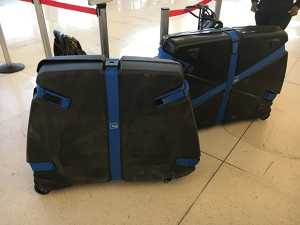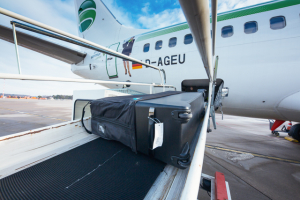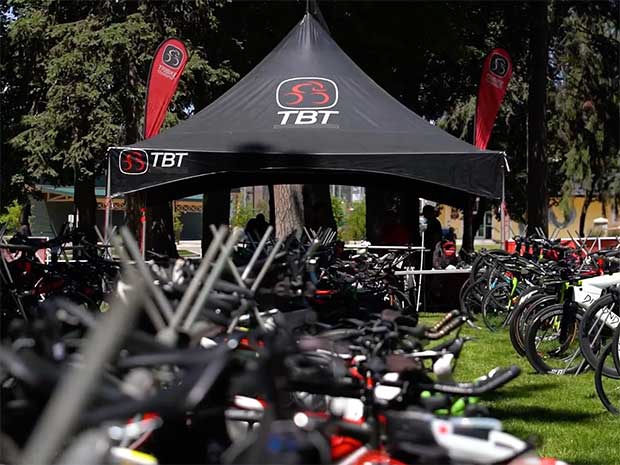
I sat on a plane at LAX getting ready to take off, destination Kona. This year was unprecedented with 4,500 bikes racing instead of 2,800. The plane was delayed and the pilot came on the intercom to explain why: the need to load a larger number of bikes into the cargo hold. As we finally prepared to take off the pilot gave us the bad news: The bikes belonging to two dozen passengers on the plane weren’t going to make it on this flight.
I had been chatting with the man sitting next to me, who was entered in the race. “I hope your bike made it onto the plane,” I said and he looked at me with a wry smile and replied, “I sent my bike ahead with TriBike Transport.”
We’re polling this question right now and it’s very early in the poll (the poll was just put up a few hours ago and has just under 200 responses). The question is how your bike will fly if you fly to an IRONMAN race. The ardency of our Slowtwitch population is evident when you consider that, “I will never fly to an IRONMAN,” is one option and only 19 percent of you selected that. But as of now, when you factor out that 19 percent, 62 percent of you report that you’ll take your bike with you on the plane; and 35 percent say you’ll use TriBike Transport. The remaining 3 percent will choose another solution.

As we’ve reported it’s easier to fly on the plane with your bike these days, because major airlines have inexplicably (but thankfully) removed the high charges for checked bikes. But the anecdote I relate above is not exceptional. A thread popped up on our Reader Forum a few months ago on the travel problems associated with IRONMAN Alaska. The CEO of Alaska Airlines, himself an IRONMAN athlete, went into overdrive to get athletes their bikes for that race.
But IRONMAN Alaska’s cargo bottleneck wasn’t unanticipated. The airline reportedly told IRONMAN months ago to warn its customers to find other ways to get their bikes to Juneau for the race. Sometimes those warnings aren’t adequately shared; sometimes athletes don’t weight those warnings as they should. A lot of athletes resorted to BikeFlights as a last minute option, but even then, “Some of us opted for Bike Flights and now our bikes are stuck in Anchorage via UPS,” lamented one competitor on that forum thread.
If you do travel to an IRONMAN via air, there are two things I would consider if I’m on the fence about taking the plane with me versus sending it ahead on TriBike Transport (or sending it using some other means). First, will this race result in an unanticipated flow of bikes? Any first-year IRONMAN race is a candidate for this. Any race that blows up big, year over year, in registration totals is a candidate for this.
Second, is this race contested in a rural area, served by a smaller airport? What equipment will the airlines use to get you to your final destination. Even a 737 us not a large plane. When we used to fly into Penticton for IRONMAN Canada the planes were positively tiny.
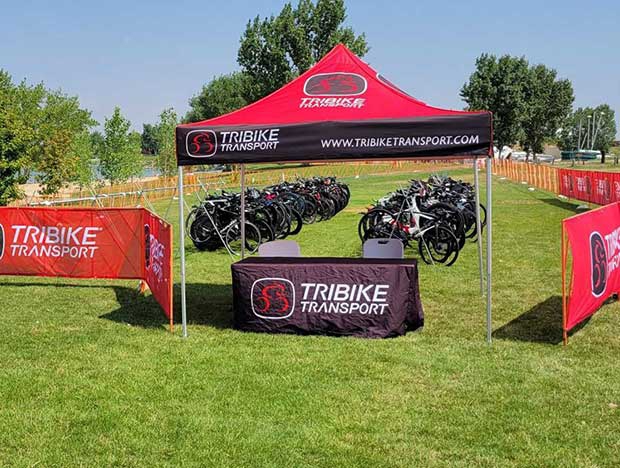
TriBike Transport has a stellar reputation among U.S.-based triathletes, but it does represent an additional race cost, for sure. Some folks deem this money well spent even if getting the bike to the race in time is not a consideration. There is no assembly or disassembly. I’ve got a bit of experience in what athletes do to their bikes – or what the airlines do to their bikes – from my Quintana Roo days. We used to perform no-charge neutral support at IRONMAN Hawaii, back in the 1990s, and at our peak we had 11 mechanics at 11 workstations under 6 pop up tents in a row on the front lawn of the King Kamehameha Hotel. There were only 1,400 racers back then and we worked on 600 bikes. We saved a lot of races that the airlines did their best to ruin, and that was before TSA looked inside every bike case. (I’ve written elsewhere about how to best inoculate yourself against TSA bike handling misadventures.
For all of that, I almost always take my bike with me on the plane when I fly to events. I have hard shell bike cases; I’ve got about 4 decades as an experienced, working bike mechanic; I’ve got the tools and I know how to pack a bike, including the best practices that attach to bikes with disc brakes. But here’s one case where I might just say fudge it, give it to TriBike Transport: If my tri bike had aerobars difficult to disassemble, specifically the inability to easily take the pursuit bar off the bike. I know one bike maker who displays at North American IRONMAN expos who told me he always takes a few extra bikes to those events because of what he says is the high incidence of bikes breaking when shipped on planes in soft shell cases that allow the pursuit bar to remain assembled. Make of that what you will.
In preparation for this article I wrangled a discount for Slowtwitchers using TriBike Transport services for races upcoming. The code is SLOWTWITCH40 and you would place it in the promo code box at checkout. This code gets you $40 off TriBike Transport bookings; would work for multiple events; and expires November 11th. If you need to cancel you retain full value to use in the future if it's at least 30 days from the race.
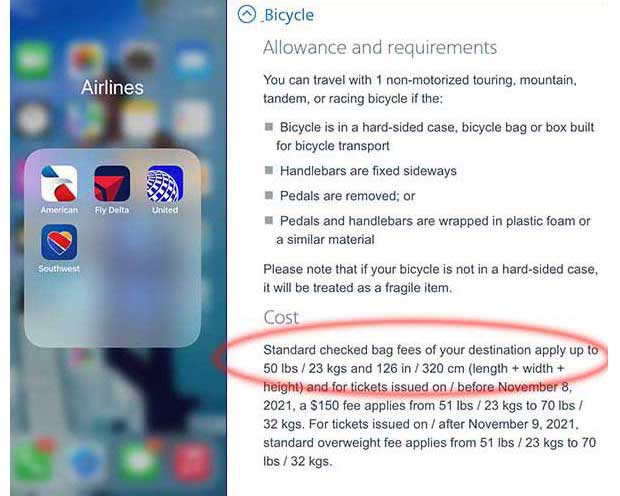
As you are considering how you’ll send your bike to races to which you’ll travel by air, consider some of our archived articles on this. Travelgate reminds us to know the airline’s bike case policies.
I have a folder on my iPhone that contains all the apps of the airlines I fly or might fly. A screenshot of those apps are on the left, above. If you click on the American Airlines app and you navigate to baggage policies you’ll find what’s om the image above right. We’ve written about the more liberal baggage policies but ticket agents have not gotten the memo (as in, they actually did get the memo, but that memo didn’t register). This is therefore a discipline in which I engage before every trip with a bike: go to the app, navigate to the policies for bikes, take a screenshot, have it ready. What they see on their screens is no different than what you have on your phone.
If you really want to be anal about this, take that screenshot when you book your travel, in case the policies change. That screenshot memorializes the policy in place when they sold you the ticket.


